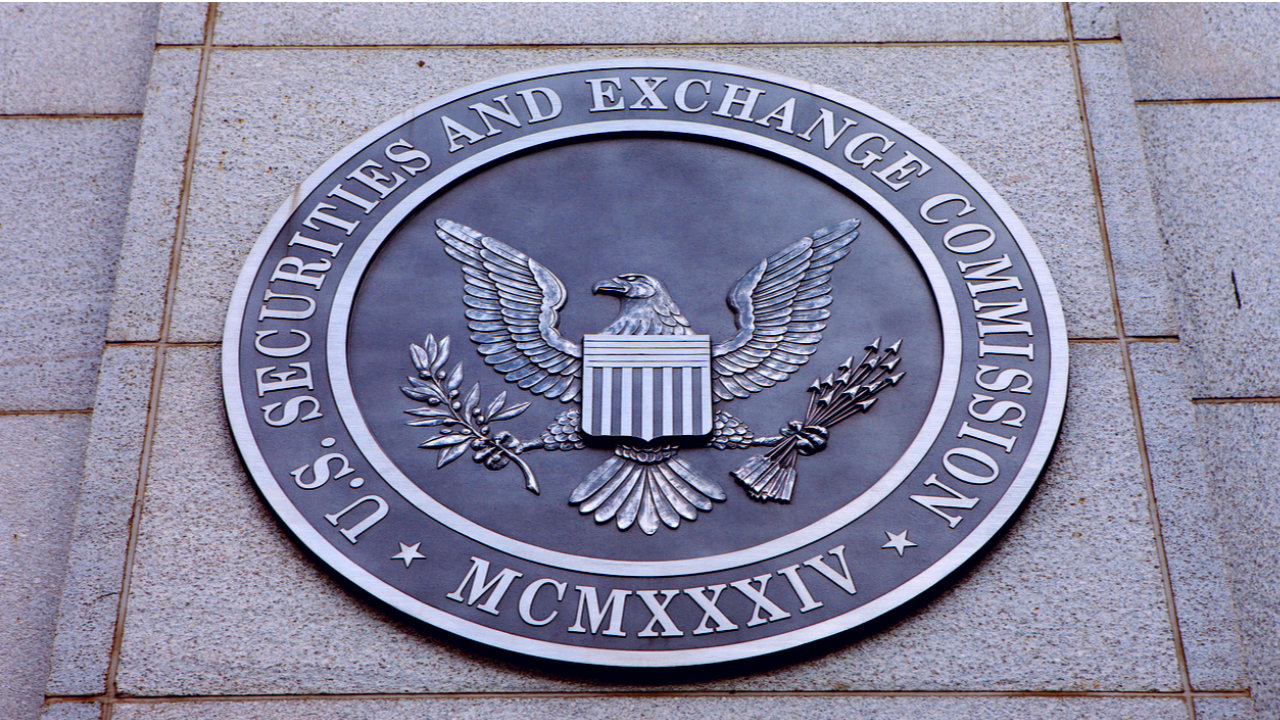
Embattled crypto brokerage Voyager Digital is filing for chapter 11 bankruptcy after a prominent borrower defaulted on a sizable loan. In a new press release, Voyager says the firm has commenced a restructuring process after crypto hedge fund Three Arrows Capital (3AC) failed to pay back a loan worth about $650 million. Voyager Digital CEO […]
The post Voyager Files for Chapter 11 Bankruptcy After Big Debt Default From Crypto Hedge Fund Three Arrows Capital appeared first on The Daily Hodl.
 Leading cryptocurrency lender Nexo has offered to buy distressed competitor Vauld, which halted operations in the face of financial difficulties. The proposal comes after the Singapore-based company said it was exploring restructuring options. Nexo Secures Exclusive Agreement to Explore Vauld’s Acquisition Singapore-based crypto lending and trading platform Vauld, which announced suspension of withdrawals and other […]
Leading cryptocurrency lender Nexo has offered to buy distressed competitor Vauld, which halted operations in the face of financial difficulties. The proposal comes after the Singapore-based company said it was exploring restructuring options. Nexo Secures Exclusive Agreement to Explore Vauld’s Acquisition Singapore-based crypto lending and trading platform Vauld, which announced suspension of withdrawals and other […]
Crypto exchange platform Voyager Digital is announcing a halt on all trades, deposits and withdrawals after one prominent borrower failed to repay its debt. Voyager CEO Stephen Ehrlich says that the crypto exchange had to stop trading activities due to the failure of an embattled digital asset hedge fund to pay back a “substantial” loan. […]
The post Crypto Exchange Voyager Halts Trading, Deposits and Withdrawals, Citing Debt Failure From Three Arrows Capital appeared first on The Daily Hodl.

The crypto lending platform's Insolvency risks puts CEL price at risk of a 70% drop.
The price of CEL, the native token of Celsius Network, has almost quadrupled since June 19 in what appears to be a frenzy stirred up by day traders.
CEL's price rose from $0.67 on June 19 to $1.59 on June 21, a 180% spike compared to the crypto market's 12.37% rise in the same period.
Notably, the rally started after PlanC, an independent market analyst, announced a $20 million bounty for anyone who could prove that the Celsius Network suffered a coordinated attack at the hands of a third party, which prompted the crypto lending firm to suspend withdrawals last week.

The announcement led to a frenzy on Twitter, with many accounts placing the hashtag #CelShortSqueeze in their bio and thus reflecting their intentions to target investors who have betted CEL's price would fall.
The hashtag was trending higher in the U.S. on Twitter. Meanwhile, internet queries for the keyword, "CEL short squeeze" also reached a perfect score of 100 between June 12 and June 18, according to data tracked by Google Trends.

The "trending" hashtag and keyword hint that day traders bought CEL tokens en masse, thus pushing its price upward.
Thus, investors who were "short," i.e., those who borrowed and sold the token in anticipations of buying it back at a lower price, had to purchase back at a higher price instead to "cover" their bearish positions.
As a result, the so-called "short squeeze" proved successful, resulting in a massive CEL rally.
$CEL this actually might become the trade of the year. Shorters got REKT big time...
— DoopieCash® (@DoopieCash) June 21, 2022
You can't make this shit up, that's why I love #Crypto #Celsius #CelShortSqueeze pic.twitter.com/A6OQwoQMhS
The event served as a reminder of the popular GameStock stock frenzy in January 2021, wherein an army of Redditors profited by damaging the short positions of Melvin Capital and other hedge funds, causing billions of dollars of losses.
Celsius Network, which held over $20 billion worth of digital assets under management last year, now risks becoming an insolvent organization. The reason is its inability to pay excessively high yields to clients (as much as 18%) on their crypto deposits.
In May, Celsius had only $12 billion worth of assets, almost half of what it held at the beginning of 2022, according to its website. The firm stopped disclosing its assets under management afterward.
CEL, a native currency inside the Celsius ecosystem for earning interest income and paying back debts, remains under downside pressure as it trades almost 84% below its peak level of $8 in April 2021.
Related: Cloudflare outage affects multiple crypto exchanges
The CEL/USD pair now eyes a retest of $1.95 as its range resistance level, according to the Fibonacci retracement graph shown below.

While a successful break above the level could have CEL test $3.11 as its next upside target, a pullback, on the other hand, could drive the price lower toward $0.34, the current range support, down 73% from today's price.
The views and opinions expressed here are solely those of the author and do not necessarily reflect the views of Cointelegraph.com. Every investment and trading move involves risk, you should conduct your own research when making a decision.

The firm emphasized that it will “actively fulfill its legal responsibilities to customers and strive to avoid further transmission and diffusion of liquidity risks.”
Hong Kong-based crypto lending firm Babel Finance has eased some of its immediate liquidity troubles by reaching debt repayments agreements with some of its counterparties.
As previously reported, the firm issued a temporary suspension of redemptions and withdrawals from its products on Friday after citing “unusual liquidity pressures” in the current bear market. The company stated it was taking swift action to protect clients and communicate with “all related parties.”
In an update posted on Monday, Babel Finance stated that it has since taken three steps to help ease its current liquidity situation. These include carrying out an emergency assessment of the firm’s business operations, communicating with shareholders/investors and reaching “preliminary agreements” for some debt repayments.
The company didn’t specify specific details about the debt repayment plans, such as interest rates or maturation date but did note that:
”We have communicated with major counterparties and relevant customers and reached preliminary agreements on the repayment period of some debts, which has eased the company’s short-term liquidity pressure.”
The firm also stated that it communicated with certain shareholders and investors about the potential to obtain liquidity support and will “actively fulfill its legal responsibilities to customers and strive to avoid further transmission and diffusion of liquidity risks.”
“We thank our customers for their understanding and support during this period and hope to obtain further support from our partners,” the firm stated.
The firm’s liquidity issues come just a month after it raised $80 million in a Series B funding round at a valuation of $2 billion. The year prior, the firm also raised $40 million in a Series A funding round led by Zoo Capital, Sequoia Capital China, Dragonfly Capital and Tiger Global Management.
Babel Finance offers financial exposure to Bitcoin (BTC), Ether (ETH) and stablecoins to a “select clientele of about 500 customers,” according to the firm.
Related: Crypto lending can still survive bear market, analyst says
The company joins a host of crypto firms undergoing liquidity troubles in the current bear market, including Three Arrows Capital, Celsius, and Finblox, to name a few, with the latter two also moving to pause withdrawals.

A Hong Kong-based crypto financial service provider is freezing withdrawals within weeks of closing a multi-million-dollar funding round. Babel Finance, which primarily works with institutional investors, and high-net-worth individuals, announced the firm is temporarily suspending customer withdrawals due to crypto market volatility and liquidity issues. “Recently, the crypto market has seen major fluctuations, and some […]
The post Hong Kong-Based Crypto Firm Suspends Withdrawals Less Than a Month After Closing $80,000,000 Funding Round appeared first on The Daily Hodl.
 On Monday, the cryptocurrency lending company Blockfi announced that “market conditions” have had a “negative impact” on the firm’s business and it will be laying off “roughly 20%” of its staff. The message written by Blockfi co-founders Zac Prince and Flori Marquez follows a slew of well known crypto firms cutting back employees due to […]
On Monday, the cryptocurrency lending company Blockfi announced that “market conditions” have had a “negative impact” on the firm’s business and it will be laying off “roughly 20%” of its staff. The message written by Blockfi co-founders Zac Prince and Flori Marquez follows a slew of well known crypto firms cutting back employees due to […] The U.S. Securities and Exchange Commission (SEC) has charged cryptocurrency lending platform Blockfi in a first-of-its-kind action. The crypto lender has agreed to pay $100 million to settle the charges and pursue necessary registrations. SEC Charges Crypto Lending Platform Blockfi The U.S. Securities and Exchange Commission (SEC) announced Monday that crypto lending platform Blockfi has […]
The U.S. Securities and Exchange Commission (SEC) has charged cryptocurrency lending platform Blockfi in a first-of-its-kind action. The crypto lender has agreed to pay $100 million to settle the charges and pursue necessary registrations. SEC Charges Crypto Lending Platform Blockfi The U.S. Securities and Exchange Commission (SEC) announced Monday that crypto lending platform Blockfi has […]
Celsius CEO Alex Mashinsky said that the oversubscribed $750 million funding round was a “very good indication” of the strength of the company's lending and yielding brand.
Crypto lending firm Celsius Network has expanded its $400 million Series B round from October to $750 million as a result of oversubscription in the firm’s capital raise.
The company is now valued at $3.5 billion following the raise and CEO Alex Mashinsky told Cointelegraph he expects that figure to “double or triple” next year which would see it valued between $7B and $10.5B
The firm previously closed the round on Oct. 12 amid a period of intense scrutiny placed on crypto lending firms from local regulators. Celsius CEO Alex Mashinsky emphasized at the time that “it’s not $400 million. It’s the credibility that comes with the people who wrote those checks.”
In an announcement shared with Cointelegraph on Nov. 25, Celsius outlined that new funds will go towards expanding into new markets and product offerings, along with building its recently announced centralized finance (CeFi) to decentralized finance (DeFi) bridging project “CelsiusX”.
Celsius will also allocate funds to improving the “utility of its platform” and its commitment to sustainable Bitcoin (BTC) mining.
Speaking on the $750 million funding round with Cointelegraph, Mashinsky said that the fact that the round was oversubscribed shows a “very good indication” of the strength of the Celsius brand, which he said was user focused.
“If you think of what we do, which is pay yield to the community, you know, we paid over $1 billion to our community and we basically get that yield from exchanges and institutions. And most of our competitors [...] they charge the customers fees and give all that money to their shareholders,” he said.
Celsisus outlined plans earlier this week to invest an additional $300 million into scaling its BTC mining operations in North America, taking its total spend on the sector to $500 million.
Mashinsky attributed his bullish estimate of Celsius’ value in 2022 to the firm’s ability to provide services in almost every sector of crypto, as he highlighted the growth potential of the business:
“I think that by itself it is worth several times what we invested. So between that and the growth of our core business, you know, the yield business, the lending business or the mining business, the DeFi business, all these things are obviously huge.”
The Celsius CEO also pointed to the $115 million acquisition of crypto custody platform GK8 at the start of this month, and revealed the firm has plans to enter the NFT sector in the near future, although it won’t be launching a marketplace as he feels there are already too many similar platforms out there.
“We think we can help kind of expand the category into other use cases or other ways of, you know, unlocking value for brands,” he said.
Related: Crypto lending firms on the hot seat: New regulations are coming?
Questioned on the firm’s $20 million crowdfunding round from August 2020, in which more than 1000 investors from the Celsius community backed the firm. Mashinsky said the firm was valued at around $150 million at the time, and while investors are currently unable to sell their holdings, it has turned out to be a handsome investment for them:
“Basically those 1000 people made on average, what is it, 25 times of their money or something like that? Obviously, it's not liquid, they can't sell it tomorrow. But we think that they are super happy.”

The sheer amount of money invested in the crypto space is causing regulatory dialog to occur at a frenetic pace as regulators struggle to keep pace.
A number of states in the United States, including Kentucky, Texas, Alabama, Vermont, New Jersey and, most recently, New York have been cracking down on crypto lending. Depending on one’s perspective, these can amount to acts of collective desperation or a foretoken of things to come.
Asked about the clampdown on crypto lending firms like BlockFi and Celsius, Firat Cengiz, senior lecturer in law at the University of Liverpool, told Cointelegraph: “The crypto regulatory space is getting increasingly heated, and not only in the U.S. but also in the rest of the world.” She added that a new regulatory approach is emerging and, as such, “the crypto market will no longer be an example of a free market regulated purely by the ‘invisible hand of the market.’”
“DeFi and stablecoins — rather than exchange or store-of-value coins such as BTC or ETH — will be the key target of emerging regulations,” Cengiz continued. “For instance, the draft EU regulations will ban interest on stablecoins,” which some believe most challenge central finance and banking institutions.
But, Cengiz doesn’t necessarily see the New York State attorney general’s mid-October shutdown of two unnamed crypto lending platforms operating in the state because of “unlawful activities,” as part of this global trend. “New York State historically has tried to make a political point by targeting crypto,” she said. Meanwhile, others have noted that James is expected to run for governor of the state, so almost everything she does at this point has a political aspect.
New York State isn’t alone in raising its eyebrows with regard to crypto lending, however. Alabama, Kentucky, New Jersey and Texas brought cease and desist orders against New Jersey-based crypto lenders BlockFi Inc. in July and Celsius in September. Both were alleged to have “unlawfully offered unregistered securities in the form of high interest-bearing accounts used to fund their lending operations and proprietary trading.”
Investors often don’t realize that the 8-9% interest they're earning on their crypto deposits — at a time when savings rates at traditional banks are well below 1% — comes packed with certain risks, i.e., their entire stake can be wiped out if the project is hacked or collapses, regulators have suggested.
“They do have a point,” Lee Reiners, executive director of the Global Financial Markets Center at Duke University School of Law, told Cointelegraph. “The marketing around many of these yield products makes it sound as though they are similar to savings accounts with guaranteed returns, when, in fact, they are not.” Nor do they come with FDIC insurance, like traditional bank saving accounts.
Others have asserted that the (sometimes) double-digit rates being paid for crypto deposits couldn't be sustained during a sharp crypto price downturn, and especially during a bear market. That is, they are mere “artifacts of an artificially inflated crypto market,” as Kevin Werbach told Roll Call.
“Of course, returns have to come from somewhere,” Reiners, a former supervisor at the Federal Reserve Bank of New York, further explained, adding:
“If you are lending crypto to a DeFi protocol or centralized firm, what are they doing with it to generate that 8% or 9% interest rate you’re getting? Well, they’re just using it to trade other coins, which is profitable when the market is going up. But, if crypto prices decline, those yields can’t be sustained.”
Anne Termine, a partner in the government enforcement and investigations practice at Bracewell LLP and former chief trial attorney at the Commodities Futures Trading Commission (CFTC), said that “there are no easy answers” on the crypto regulatory front, but the sheer amount of money invested in the crypto space now is causing the regulatory dialog to occur at a more frenetic pace, telling Cointelegraph:
“In any industry, innovation comes first and regulation comes after. What’s happening here is that the innovation is happening at such a speed that the regulators are struggling to keep up.”
With regard to the questions surrounding lending, some in the crypto community argue: “Just because we’re offering a product that’s better than what banks can offer doesn’t make us illegitimate… it doesn’t mean we’re an outright fraud,” she added. And not all crypto protocols should be tarred with the same brush. The big actors in the space are often fairly sophisticated companies that take consumer protection seriously, Termine added.
Asked if regulators have a point that 8-9% saving rates seem perhaps too good to be true, Cengiz answered. “Yes, of course, there are undeniable gaps of consumer protection in the crypto market.” It still isn’t clear, from a legal standpoint, to what extent lending to or borrowing from a decentralized finance (DeFi) protocol counts as a financial contract under current financial consumer protection rules, she said, adding:
“However, the response to this should not be bringing highly political individual cases, but taking legislative action to provide sufficiently clear regulatory guidance both to consumers and providers. I find it hard to categorize the types of individual actions that you mention as genuinely originating from consumer protection incentives.”
Reiners, for his part, has little patience with the position that state attorneys general like Letitia James are just trying to score political points or protecting legacy banks. “The crypto community always acts like they are victims whenever something like this happens when, in reality, regulators are simply doing their job and enforcing the law. And frankly, I don’t see how going after crypto companies scores any ‘political points.’ It’s not as if there is an anti-crypto lobby out there with votes to be had.”
“There is nothing new under the sun,” Geoffrey Goodell, a research associate at University College London and deputy executive director of the UCL Centre for Blockchain Technologies, told Cointelegraph. “Businesses are seeking sources of capital and investors are seeking sources of yield. In this case, businesses are using the language of asset custodians to suggest safety that does not exist, while dodging traditional regulatory barriers to such activities.” He added that since investors are eager to earn high eyelids, the situation turns into a “dangerous game that we have seen many times before.”
“The problem with any cryptocurrency not backed by central banks is volatility and potentially losing the investment,” Laura Gonzalez, associate professor of finance at California State University at Long Beach, told Cointelegraph. She added that “There is a significant risk and return tradeoff,” and investors should tread carefully when they enter this space.
Others have suggested that by going after firms like Celsius, BlockFi and others, regulators are simply seizing the low-hanging fruit. It may be more difficult to clamp down on more decentralized lending projects where no individual or company is clearly in charge.
Cengiz acknowledges that decentralized platforms could present “significant problems and complications” for enforcement agencies including locating the jurisdiction responsible for the investigation, deciding on the applicable law and identifying individuals responsible:
“Successful enforcement against decentralized platforms will require a very strong international network between enforcement agencies, which we do not see in any other area of law.”
“Having said this, sometimes crypto platforms make themselves a target of law by blindly ignoring regulatory advice,” Cengiz added. One example: The United Kingdom Financial Conduct Authority (FCA) ordered Binance to cease all operations because Binance failed to ask for FCA authorization “under very clear regulatory guidance.”
“We are seeing a lot of movement across governments, not just at the federal level but at the worldwide level and certainly at the state level too,” said Termine. “The crypto community is asking: Can we please get coordinated on this.”
Is the same debate going on in other countries as well? Termine said “Absolutely,” all over the world and especially when it comes to the Bank of England (BOE). Its deputy governor, Jon Cunliffe, drew comparisons between the current cryptocurrency boom and the run-up in U.S. sub-prime mortgages in 2008 right before the financial collapse.
Indeed, crypto’s market value, which touched $2.5 trillion in mid-October, was roughly double the value of the subprime market in 2008 — $1.2 trillion — which shows that “you don’t have to account for a large proportion of the financial sector to trigger financial stability problems,” Cunliffe said.
Termine viewed the BOE deputy governor’s remarks as a good example of the growing “fervor” on the part of regulators globally to deal with cryptocurrencies. Cengiz told Cointelegraph:
“Regulators do not seem to understand the dynamics of the crypto market fully, and the actions that they take are likely to discourage at least some consumers from partaking in an emerging and potentially very efficient and innovative investment market.”
She added that the goal should be regulation that “protects citizens against usual hazards of the crypto market such as financial complexity, fraud, cyber attacks, etc. without compromising innovation.”
Reiners was asked if there were any circumstances under which he would support crypto lending, to which he stated: “If it facilitated real economic activity. But right now, all it does is facilitate more speculation in crypto. But from a legal standpoint, if these products are offered outside of banks, they need to be registered as securities.”
Related: Crypto breaks Wall Street’s ETF barrier: A watershed moment or stopgap?
In sum, the cryptocurrency and blockchain industry is “not something that can be ignored anymore” by regulators, said Termine, who worked nearly 20 years at the CFTC. “Ten years ago, it seemed that this was a fad,” the province of software engineers in an obscure corner of the world.
No one took the idea of an open decentralized financial network seriously. “But 10 years later, there’s more than $2 trillion of market value floating in this space, and regulators around the world have to sit up and say, ‘We can’t not look anymore.’”